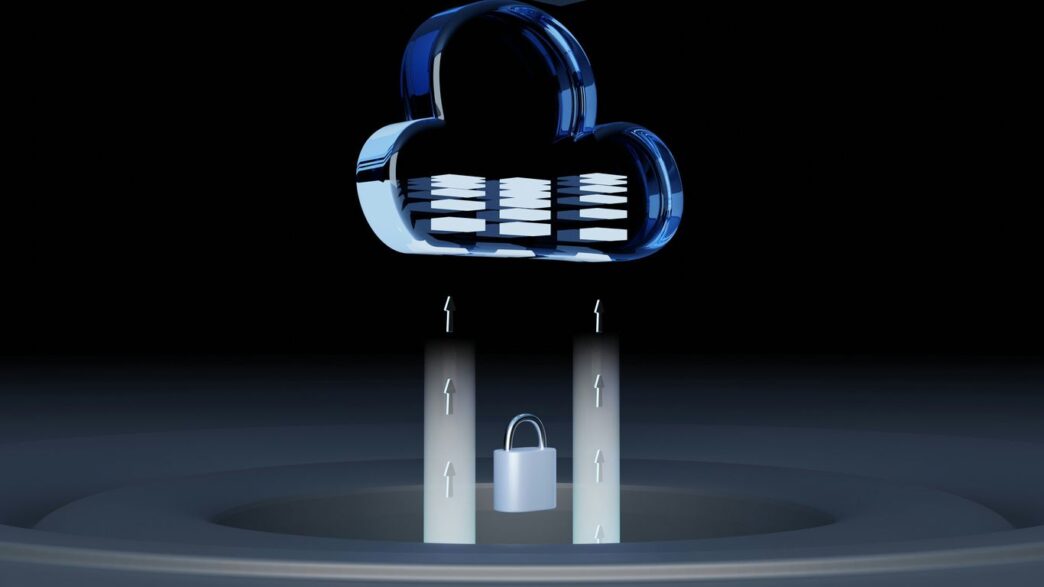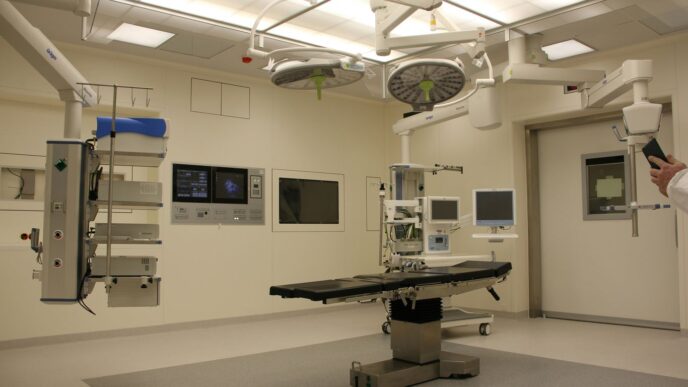Moving patient data to the cloud is becoming the norm in healthcare. It helps with everything from keeping records to offering remote care. But, let’s be real, keeping all that sensitive information safe is a big deal. We’ve got rules like HIPAA to follow, and if something goes wrong, the fallout can be pretty serious. This article is all about looking at the cloud storage options out there that can help healthcare providers keep patient data secure and meet those important regulations. We’ll cover what you need to know about HIPAA, the security features to watch out for, and how to pick the right solution for your practice.
Key Takeaways
- HIPAA compliance for cloud storage in healthcare means more than just storing files; it covers all systems handling patient data, including apps and AI tools.
- Major cloud storage providers offer features like encryption, access controls, and logs that help meet HIPAA rules.
- To be truly compliant, healthcare organizations need to combine secure storage with overall cloud security, constant monitoring, and automated checks.
- Protecting patient data in the cloud is vital, as breaches can lead to huge fines, damage to reputation, and loss of patient trust.
- When choosing a cloud storage solution for healthcare, look for strong encryption, multi-factor authentication, disaster recovery, and good support for compliance.
Understanding Cloud Storage in Healthcare
So, let’s talk about cloud storage in healthcare. It’s a pretty big deal these days, and for good reason. Basically, instead of keeping all your patient records and other sensitive info on servers in your own building, you’re using services provided over the internet. Think of it like using online email instead of a physical mailbox – but way more secure and complex.
The Role of Cloud Solutions in Patient Care
Cloud services are changing how healthcare is delivered. They help with everything from managing electronic health records (EHRs) to making telemedicine appointments possible. This shift means doctors and nurses can access patient information more easily, which can lead to quicker diagnoses and better treatment plans. It’s all about making care more efficient and accessible. Plus, the cloud helps analyze large amounts of health data, which can be a game-changer for medical research and spotting disease outbreaks.
Defining Cloud Computing in the Healthcare Sector
When we talk about cloud computing in healthcare, we mean using remote servers on the internet to store, manage, and process health data. It’s different from the old way of having all your own hardware. The cloud offers flexibility; you can scale up or down your storage needs as they change. This means healthcare organizations can get the computing power they need without buying and maintaining tons of equipment themselves. It also means authorized staff can get to patient data from pretty much anywhere, which is super helpful for collaboration.
Benefits of Cloud Adoption for Healthcare Data
Adopting cloud storage brings a bunch of advantages. For starters, it can be more cost-effective than managing your own IT infrastructure. You also get better scalability, meaning you can easily adjust your storage capacity as your needs grow or shrink. Here are a few key benefits:
- Improved Accessibility: Authorized personnel can access patient data from various locations and devices, promoting better collaboration.
- Enhanced Data Analytics: The cloud provides the power to analyze vast datasets, aiding in research, identifying trends, and personalizing treatments.
- Cost Savings: Reduces the need for significant upfront investment in hardware and ongoing maintenance costs.
- Disaster Recovery: Cloud providers often have robust backup and recovery systems in place, helping to protect data in case of local emergencies.
It’s important to remember that while the cloud offers these benefits, protecting patient data remains the top priority. Choosing the right cloud provider and implementing strong security measures are key to realizing these advantages safely.
Core HIPAA Requirements for Cloud Storage Providers
When you’re dealing with patient data in the cloud, HIPAA compliance isn’t just a suggestion; it’s a legal mandate. For cloud storage providers, this means meeting a specific set of standards to protect electronic Protected Health Information (ePHI). It’s not just about having a secure place to put files; it’s about a whole system of safeguards. Meeting these requirements is non-negotiable for any healthcare organization using cloud services.
Encryption Standards for Protected Health Information
One of the biggest pieces of the puzzle is encryption. Think of it like putting your sensitive documents in a locked safe. HIPAA requires that ePHI be encrypted both when it’s stored (at rest) and when it’s being sent across networks (in transit). This usually means using strong, industry-standard encryption methods, like those approved by the National Institute of Standards and Technology (NIST). Without proper encryption, data is vulnerable to being read by unauthorized individuals if it falls into the wrong hands.
Implementing Robust Access Controls
Who gets to see what? That’s the core of access controls. Cloud providers must have systems in place to make sure only authorized people can access ePHI. This typically involves:
- Role-Based Access: Assigning permissions based on a person’s job function. A billing clerk doesn’t need access to a doctor’s notes, for example.
- Unique User IDs: Every person accessing the system needs their own login. No more shared accounts!
- Multi-Factor Authentication (MFA): Requiring more than just a password, like a code sent to a phone, to verify identity.
These measures help prevent unauthorized access and ensure that patient data isn’t accidentally or intentionally exposed.
The Necessity of Audit Trails and Logging
If something happens, you need to know who did what and when. HIPAA requires cloud providers to maintain detailed audit trails. This means logging all activity related to ePHI, including who accessed it, when they accessed it, and any changes made. These logs are critical for:
- Security Monitoring: Spotting suspicious activity or potential breaches.
- Compliance Reviews: Providing evidence during audits that data access is being managed properly.
- Incident Investigation: Helping to understand the scope of a security incident if one occurs.
Without good logging, it’s nearly impossible to prove you’re following the rules or to investigate problems effectively.
Understanding Business Associate Agreements
A Business Associate Agreement (BAA) is a contract between a healthcare organization (the covered entity) and a cloud service provider (the business associate). This document is legally binding and outlines the responsibilities of the cloud provider in protecting ePHI. It clarifies how the provider will handle, store, and secure patient data according to HIPAA rules. Signing a BAA is a fundamental step before any ePHI can be shared with or stored by a third-party cloud provider. It shows that both parties understand their roles in maintaining data security and privacy.
Essential Security Features for Healthcare Cloud Storage
When you’re talking about storing patient data in the cloud, just having a place to put it isn’t enough. You need some serious security features built-in. Think of it like putting your most valuable possessions in a vault – you want the best locks and alarms available. For healthcare, this means protecting sensitive information like diagnoses, treatment plans, and personal details from falling into the wrong hands.
Leveraging End-to-End Encryption and Tokenization
One of the first lines of defense is making sure your data is unreadable to anyone who shouldn’t see it. This is where encryption and tokenization come in. Encryption scrambles your data so it looks like gibberish without a special key. Tokenization replaces sensitive data with a unique placeholder, or token, that has no exploitable meaning or value. These methods are vital for protecting Protected Health Information (PHI) both when it’s being sent across networks and when it’s just sitting there on a server. Even if someone managed to intercept the data, they wouldn’t be able to make heads or tails of it.
Implementing Multi-Factor Authentication
Passwords are okay, but they’re not always enough on their own. Multi-factor authentication (MFA) adds extra layers of security. Instead of just a password, users might need to provide a second or even a third piece of proof that they are who they say they are. This could be a code sent to their phone, a fingerprint scan, or a physical security key. It significantly cuts down the risk of unauthorized access, even if a password gets compromised.
Ensuring Disaster Recovery and Business Continuity
What happens if something goes wrong? A natural disaster, a major system failure, or even a cyberattack could take your systems offline. Disaster recovery and business continuity plans are about having a backup. This means:
- Regular Backups: Making copies of your data and storing them securely, often in a different location.
- Redundancy: Having backup systems ready to take over if the primary ones fail.
- Recovery Plans: Clearly defined steps for how to get systems back up and running quickly after an incident.
This ensures that patient care isn’t interrupted for too long and that critical data remains accessible.
Real-Time Threat Detection and Monitoring
Security isn’t a set-it-and-forget-it kind of thing. You need to be constantly watching for suspicious activity. Real-time threat detection and monitoring systems act like security cameras and alarm systems for your cloud environment. They look for unusual patterns, potential intrusions, or policy violations as they happen. When something looks off, these systems can alert administrators immediately, allowing them to respond before a small issue turns into a big problem.
Mitigating Risks in Healthcare Cloud Environments
So, we’ve talked about why cloud storage is a big deal for healthcare, and what HIPAA wants you to do. Now, let’s get real about the bumps in the road. Moving patient data to the cloud isn’t just plug-and-play; there are definite risks involved, and ignoring them is a recipe for disaster. The biggest challenge is keeping sensitive patient information safe from bad actors and accidental leaks.
Addressing Data Privacy Concerns
Privacy is a huge deal in healthcare, and for good reason. When you move data to the cloud, you’re essentially trusting another company with your patients’ most personal details. It’s not just about following the rules; it’s about maintaining trust. You need to be super clear about who has access to what and how that data is being protected. This means looking closely at how your cloud provider handles data, where it’s stored, and what happens if there’s a breach. Making sure your cloud provider has solid access control policies is a good start.
The Impact of Data Breaches on Healthcare Institutions
Let’s face it, a data breach in healthcare is way more serious than, say, a retail store getting hacked. We’re talking about patient records, medical histories, and personal identifiers. If that information gets out, it can lead to identity theft, financial ruin for patients, and a massive loss of trust for the healthcare provider. Think about the chaos: canceled appointments, delayed treatments, and a general feeling of insecurity. The financial fallout can be staggering too, with hefty fines and the cost of recovering from the incident. It can really cripple an organization.
Strategies for Staff Training and Awareness
Sometimes, the weakest link isn’t the technology, but the people using it. Human error is a big one. Phishing scams, weak passwords, or just not knowing how to handle sensitive data correctly can open the door for attackers. That’s why training your staff is non-negotiable. It needs to be ongoing, not just a one-time thing. Think about:
- Regular workshops on identifying suspicious emails and links.
- Clear guidelines on password management and data handling procedures.
- Simulated phishing tests to gauge understanding and reinforce learning.
When everyone on the team is on the same page about security, it makes a huge difference in protecting patient data.
Key Components of Healthcare Cloud Security
When we talk about keeping patient data safe in the cloud, it’s not just one thing. It’s a whole system of parts working together. Think of it like building a secure house; you need strong walls, a good lock, and maybe even an alarm system. In the healthcare cloud world, these components are just as important.
Data Encryption at Rest and In Transit
First off, we have data encryption. This is like putting your sensitive documents in a locked safe. When data is "at rest," meaning it’s stored somewhere, it’s encrypted. When it’s "in transit," moving from one place to another, it’s also encrypted. This makes it unreadable to anyone who shouldn’t see it. It’s a basic but really important step for protecting electronic protected health information (ePHI).
Identity and Access Management Systems
Next up is Identity and Access Management, or IAM. This is all about making sure the right people can get to the right information, and nobody else can. It’s like having a bouncer at a club who checks IDs. We grant access based on a person’s job role, so a nurse only sees what they need for their patients, and a doctor sees what they need for their cases. This follows the idea of "least privilege," meaning you only get access to what you absolutely need to do your job. It helps prevent accidental snooping or intentional misuse of data.
Network Security Measures
Then there’s network security. This involves things like firewalls, which act as a barrier to stop unwanted traffic from getting in or out. We also use network segmentation, which is like dividing your house into different rooms with their own locks, so if one area is compromised, the rest stays safe. Intrusion detection systems are also part of this, constantly watching for anything suspicious happening on the network. These measures work together to keep the digital walls strong.
Regular Security Audits and Compliance Checks
Finally, we can’t forget about regular checks. This means doing security audits often and making sure everything lines up with rules like HIPAA. It’s like having a building inspector come by to make sure everything is up to code. These audits help us find weak spots before someone else does and confirm that we’re doing what we’re supposed to do to protect patient information. It’s a continuous process, not a one-time fix, and it’s vital for maintaining trust and safety in the healthcare cloud security environment.
Choosing the Right Cloud Storage Solution
So, you’ve decided the cloud is the way to go for your healthcare data. That’s a big step, and honestly, a smart one. But picking the right solution? That’s where things can get a bit tricky. It’s not just about finding a place to dump files; it’s about making sure that place is secure, compliant, and actually works for your team. You need a provider that understands healthcare’s unique needs.
Evaluating HIPAA-Compliant Cloud Storage Options
When you’re looking at cloud storage for patient information, the first thing that has to be on your checklist is HIPAA compliance. This isn’t just a suggestion; it’s the law. You’ll want to look for providers who explicitly state they meet HIPAA standards and are willing to sign a Business Associate Agreement (BAA). This document is legally binding and outlines how the provider will protect your Protected Health Information (PHI). Don’t just take their word for it; ask for details on their security measures. Some providers, like HIPAA Vault, specialize in this and offer fully managed solutions.
Here’s what to look for:
- Encryption: Data needs to be encrypted both when it’s stored (at rest) and when it’s being sent (in transit). Look for providers using strong, recognized encryption standards.
- Access Controls: How does the provider manage who can see what? Role-based access and multi-factor authentication (MFA) are non-negotiable.
- Audit Trails: You need to know who accessed what, when. Robust logging and auditing capabilities are a must for tracking activity.
- Business Associate Agreement (BAA): As mentioned, this is critical. Make sure it’s signed and clear about responsibilities.
Scalability and Integration Capabilities
Your healthcare practice isn’t static, so your cloud storage shouldn’t be either. Think about where you see your organization in a year, or five years. Will the storage solution grow with you? Can it handle more data, more users, and more complex applications as your needs evolve? Integration is another big piece of the puzzle. How well does the cloud storage play with your existing Electronic Health Record (EHR) system, your billing software, or any other critical applications? A solution that’s hard to connect or doesn’t play nice with your current setup can create more problems than it solves. Some platforms are better suited for simple file storage, while others can support entire application environments, which is important to consider.
The Importance of Dedicated Compliance Support
Let’s be honest, staying compliant with HIPAA and other regulations can feel like a full-time job on its own. That’s why having a cloud provider that offers dedicated compliance support can be a lifesaver. This means having access to experts who understand the healthcare landscape and can help you configure your environment correctly, answer your questions, and guide you through any compliance challenges. It’s not just about the technology; it’s about the partnership. Some providers offer automated compliance controls and continuous monitoring, which can significantly reduce the burden on your IT staff and give you peace of mind. Remember, compliance isn’t just about the tools you use; it’s about how you use them and manage your environment over time.
Wrapping Up: Keeping Patient Data Safe in the Cloud
So, we’ve talked a lot about how the cloud is changing healthcare, making things faster and maybe even cheaper. But let’s be real, keeping patient info locked down is the main thing. It’s not just about picking a cloud service; it’s about making sure it’s set up right and stays that way. Think encryption, strong passwords, and keeping an eye on things. It’s a big job, and it takes constant attention, but protecting that sensitive data is what builds trust and keeps everyone compliant. It’s definitely worth the effort.
Frequently Asked Questions
What is HIPAA and why is it important for cloud storage?
HIPAA is a law that sets rules for how healthcare places handle private patient information. When using cloud storage, it’s super important that the cloud service follows these rules to keep patient data safe and private. This helps prevent fines and keeps patients’ trust.
How does cloud storage help doctors and hospitals?
Cloud storage makes it easier for doctors and hospitals to keep patient records safe and accessible. They can get to information from anywhere, which helps with teamwork, better patient care, and even research. It’s like having a super organized digital filing cabinet that’s always available.
What does ‘encryption’ mean for my health data in the cloud?
Encryption is like a secret code for your data. When your health information is encrypted, it’s scrambled so that even if someone unauthorized got it, they couldn’t understand it. It’s a key way to protect sensitive details, both when the data is being sent and when it’s stored.
What is a ‘Business Associate Agreement’ (BAA)?
A BAA is a special contract between a healthcare provider and a cloud service company. It’s a promise from the cloud company that they will protect patient information according to HIPAA rules. It makes them legally responsible for keeping your data safe.
What happens if patient data is stolen from the cloud?
If patient data is stolen, it’s called a data breach. This can be really bad for hospitals and clinics. They might have to pay big fines, lose the trust of their patients, and deal with legal problems. That’s why strong security is so important.
Can I use any cloud storage, or do I need special ones for healthcare?
You can’t just use any cloud storage. For healthcare, you need cloud storage that is specifically designed to be HIPAA-compliant. These services have extra security features like strong encryption and strict access controls to protect sensitive patient information.














